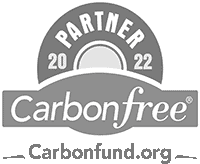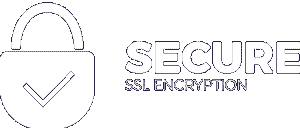In recent years, wind and solar power have become increasingly popular as people look for more sustainable energy sources. However, there is still a lot of debate about which one is better. Some people argue that wind power is more efficient because it can be generated around the clock, while others contend that solar power is more reliable because it is not affected by weather conditions.
So, which is better? Diboll Energy Reviews provides a detailed comparison of the two types of energy, based on factors such as cost, environmental impact, and energy production. In general, wind power comes out ahead in most categories. However, both options have their advantages and disadvantages, so it is important to weigh all the factors before making a decision.
For example, while wind power is more expensive upfront, it tends to be cheaper in the long run. Solar power, on the other hand, is less expensive to install but requires more maintenance over time. Ultimately, the best option for you will depend on your specific needs and preferences.
If you’re shopping for a new energy plan, it’s important to find one that fits your needs. After all, there’s no point in signing up for a plan that doesn’t give you the right mix of price, features, and customer service. So how do you find the right plan for you?
Start by thinking about what you need from your energy provider. Are you looking for a low price? A green energy option? A company with great customer service? Once you know what’s important to you, you can start shopping around.
You can compare energy plans online, or you can give your local utility a call. They can usually provide you with a list of energy providers in your area and their rates. From there, it’s just a matter of doing some research to find the best deal.
Once you’ve found a few options that look good, it’s time to start comparing prices. Energy plans can vary quite a bit in price, so it’s important to compare apples to apples. Make sure you’re looking at the same type of plan (fixed-rate vs variable-rate, for example), and be sure to compare prices after any discounts or rebates have been applied.
Once you’ve found the best price, it’s time to consider the other factors that are important to you. read reviews of energy providers to see what other customers have to say about their experience. And be sure to check out the company’s website to learn more about its products and services.
By taking the time to find the right energy plan for your needs, you can be sure that you’re getting the best possible value for your money. So don’t wait any longer – start shopping around today!
Other Cities We Serve: Dallas | Waco | Killeen
Most people have heard the term “green energy,” but not everyone knows exactly what it means. Green energy is simply energy that comes from renewable sources, like solar power, wind power, and water power. These forms of energy are environmentally friendly because they don’t produce pollution or carbon emissions. In contrast, traditional forms of energy, like coal and oil, release harmful toxins into the air when they’re used.
Green energy is also more sustainable than traditional forms of energy because it can be replenished. For example, once a solar panel is installed, it can produce solar power for many years with little to no maintenance. This is in contrast to coal mines, which have to be constantly mined for new coal. Because green energy is more sustainable and environmentally friendly, it’s becoming increasingly popular as a way to power homes and businesses.
If you’re shopping for a new energy plan, you may be wondering whether to choose a fixed-rate or variable-rate plan. Both have their benefits and drawbacks, so it’s important to understand the difference before making a decision.
If you’re shopping for a new energy plan, you may come across something called a fixed-rate plan. But what exactly is a fixed-rate plan, and is it the right choice for you? Here’s everything you need to know about fixed-rate energy plans.
A fixed-rate energy plan simply means that the price per unit of energy (usually electricity or natural gas) will be locked in for a set period of time, typically 12 months. This can provide some peace of mind, especially if there are concerns about energy prices increasing in the near future.
One thing to keep in mind with a fixed-rate plan is that you may be charged a higher rate per unit of energy than the current market rate. This is because the provider is taking on the risk that prices may go up during your contract period. So, if energy prices do go up, you’ll be protected from having to pay more, but you also won’t benefit if prices go down.
Another point to consider is that most fixed-rate plans have early termination fees, so if you do decide to switch plans before your contract is up, you may have to pay a penalty.
All in all, a fixed-rate energy plan can be a good choice if you like the security of knowing your rate won’t change for a set period of time and you don’t mind paying slightly more per unit of energy. Just be sure to shop around and compare rates before signing up for any plan.
A variable-rate energy plan is an electricity rate that can change month to month or even day to day. The biggest reason why your electricity rates might change is because of the price of natural gas. Most electric utilities in the United States use natural gas to generate electricity, so when the price of natural gas goes up, so does the price of electricity.
There are a few other factors that can affect your electricity rates, such as the weather and the time of year, but natural gas is usually the biggest factor.
With a variable-rate energy plan, you’ll pay whatever the market price is for electricity at the time you use it. That means that your rates could go up or down depending on market conditions.
Some people like variable-rate energy plans because they’re flexible and they can save money if market conditions are favorable. Others don’t like them because they’re unpredictable and they could end up paying more than they would with a fixed-rate energy plan.
It’s really a matter of personal preference. If you’re someone who likes to take a little bit of risk in exchange for the potential for savings, then a variable-rate energy plan might be right for you. But if you prefer predictability and stability, then a fixed-rate energy plan is probably a better choice.
What types of energy plans are available?
Energy plans vary from provider to provider and can include fixed–rate plans, variable–rate plans, green energy plans, and loyalty reward plans. It’s important to compare the different plans and make sure that the plan you choose meets your energy needs and fits your budget.

Terms, conditions, features, availability, pricing, fees, service and support options subject to change without notice.
Public Utility Commission of Texas Broker Registration BR190123
© 2022 Energy Reviews. All Rights Reserved.



